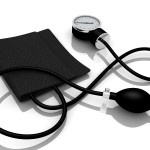High blood pressure symptoms more prevalent among those with poor education
High blood pressure increases the likelihood of stroke, heart attacks and kidney failure, and a new study says it is less common among people with higher levels of education.
People who are more educated tend to suffer less socio-economic pressures and better standards of living, and the researchers believe that explains why there is less incidence of high blood pressure among them.
Moreover, the study, which was published in the medical journal BMC Public Health, says that the connection is clearer in women than among men.
The researchers looked at medical data collected for 30 years of 3,890 people under the Framingham Offspring Study. Three groups of people according to level of education were made: low - 12 years and below, middle - 13 to 16 years and high - 17 years and above.
Women with poor education had an average of 3.26 mmHg higher blood pressure compared to those who had higher levels of education. Among men, the gap was 2.26 mmHg on average.
The study took factors like smoking, drinking and antihypertensive medication into consideration and came up with the same conclusion.
"Low educational attainment has been demonstrated to predispose individuals to high strain jobs, characterized by high levels of demand and low levels of control, which have been associated with elevated blood pressure," the study authors wrote.
Brown University professor Eric Loucks, who is one of the authors, explained the link further.
"Women with less education are more likely to experiencing depression, they are more likely to be single parents, more likely to be living in impoverished areas and more likely to be living below the poverty line," he said.
Regardless of gender, educational attainment or socio-economic status, health experts urge people to reduce the risk of stroke and heart attacks by promptly addressing high blood pressure symptoms.
